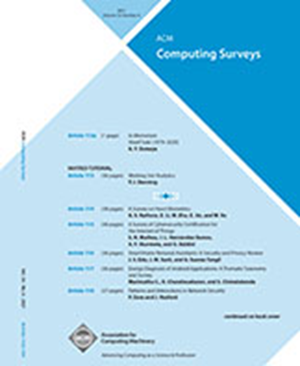自动程序修复中不断演变的范式:分类、挑战和机遇
IF 23.8
1区 计算机科学
Q1 COMPUTER SCIENCE, THEORY & METHODS
引用次数: 0
摘要
随着程序软件的快速发展和大规模普及,现代社会越来越依赖于软件系统。然而,软件暴露出的问题也随之凸显。软件错误已成为困扰开发人员的重要因素。在这种情况下,自动程序修复(APR)技术应运而生,旨在自动修复软件错误问题,减少人工调试工作。特别是得益于深度学习的发展,近年来出现了许多基于学习的自动程序修复技术,这也为自动程序修复研究带来了新的机遇。为了让研究人员快速了解 APR 技术的完整发展历程和未来机遇,我们回顾了 APR 技术的发展历程,并深入探讨了 APR 研究的最新进展。本文从基于搜索、基于约束、基于模板和基于学习的四种不同补丁生成方案介绍了 APR 技术的发展。此外,我们提出了一套统一的标准来审查和比较每种 APR 工具,然后讨论了 APR 的发展现状。最后,我们分析了当前的挑战和未来的发展方向,特别强调了大型语言模型为 APR 研究带来的重要机遇。本文章由计算机程序翻译,如有差异,请以英文原文为准。
Evolving Paradigms in Automated Program Repair: Taxonomy, Challenges, and Opportunities
With the rapid development and large-scale popularity of program software, modern society increasingly relies on software systems. However, the problems exposed by software have also come to the fore. The software bug has become an important factor troubling developers. In this context, Automated Program Repair (APR) techniques have emerged, aiming to automatically fix software bug problems and reduce manual debugging work. In particular, benefiting from the advances in deep learning, numerous learning-based APR techniques have emerged in recent years, which also bring new opportunities for APR research. To give researchers a quick overview of APR techniques’ complete development and future opportunities, we review the evolution of APR techniques and discuss in depth the latest advances in APR research. In this paper, the development of APR techniques is introduced in terms of four different patch generation schemes: search-based, constraint-based, template-based, and learning-based. Moreover, we propose a uniform set of criteria to review and compare each APR tool and then discuss the current state of APR development. Finally, we analyze current challenges and future directions, especially highlighting the critical opportunities that large language models bring to APR research.
求助全文
通过发布文献求助,成功后即可免费获取论文全文。
去求助
来源期刊

ACM Computing Surveys
工程技术-计算机:理论方法
CiteScore
33.20
自引率
0.60%
发文量
372
审稿时长
12 months
期刊介绍:
ACM Computing Surveys is an academic journal that focuses on publishing surveys and tutorials on various areas of computing research and practice. The journal aims to provide comprehensive and easily understandable articles that guide readers through the literature and help them understand topics outside their specialties. In terms of impact, CSUR has a high reputation with a 2022 Impact Factor of 16.6. It is ranked 3rd out of 111 journals in the field of Computer Science Theory & Methods.
ACM Computing Surveys is indexed and abstracted in various services, including AI2 Semantic Scholar, Baidu, Clarivate/ISI: JCR, CNKI, DeepDyve, DTU, EBSCO: EDS/HOST, and IET Inspec, among others.
 求助内容:
求助内容: 应助结果提醒方式:
应助结果提醒方式:


